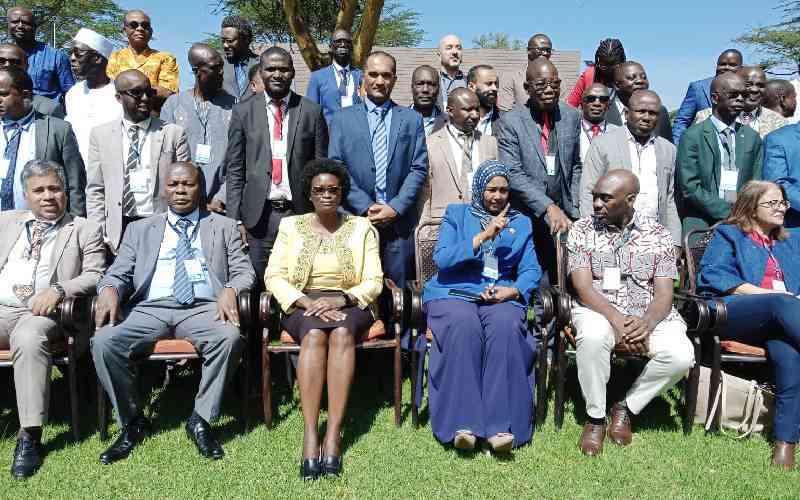×
The Standard e-Paper
Stay Informed, Even Offline

Kenya Fisheries Director Lucy Obungu with African Union Director Dr Huyam Salih (both at centre) pause for a photo with participants after the official opening of the 2nd General Assembly Congress of Aquaculture for Africa (ANAF) in Naivasha on Jan 15, 2023. [Courtesy]
African governments have been urged to seek more partnerships with the private sector to enhance aquaculture production.